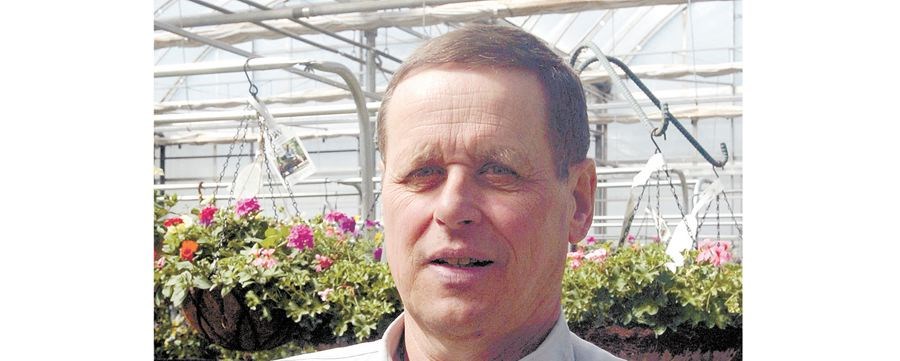Whether you made up your own container garden/hanging basket or purchased one already made, you want to be able to enjoy it for the entire season. There is some maintenance involved in keeping your container garden looking beautiful and healthy from now until September.
Location is important. Sun containers require a minimum of six hours of daily bright sun each day. Shade containers should be placed in an area that is out of direct afternoon sun. Ideally it can receive early morning or late afternoon sun.
Moisture should be checked daily. Every morning check the dryness of the soil by putting your finger in the soil. The soil should be kept evenly moist. If the plants are wilting you know that they are too dry. The best time to water plants is in the morning and try to water the soil and not the foliage of the plants. If the foliage is wet for long periods of time or in cool conditions, it could encourage mold and mildew. When watering, give the plant a thorough water. It is better to water for longer and less often, rather than a little and more often. You will notice that later in the season the containers will dry out more quickly, due to larger sized root systems, and you may have to water more often.
Plants can't live on water alone, they need nutrients for healthy plant growth and flower production. Use a flowering plant fertilizer that has a lower first number (nitrogen-promotes green growth) and a higher second number (phosphorus-promotes healthy root growth and flower production), and lower third number (potassium - overall plant health). The high middle number will give you lots of flowers. A good water soluble fertilizer is 12-36-12. It is mixed with water, following the directions given on the container, then applied weekly to the plants. If you forget to fertilize one week, don't double up on the next application as too much fertilizer can cause the plants to burn.
Do a weekly check of your plants and look for pests or disease. Ideally you want to catch any problem early when it is easier to treat. A weekly application of insecticidal soap can be beneficial in keeping pest problems at a minimum. A common pest complaint is aphids, a soft bodied, sap-sucking insect. Aphids are often found on the new growth of plants or on the undersides of foliage. When checking plants, remove any broken or damaged leaves or stems to prevent fungal diseases which can be caused from rot or mildew, due to rotting plant material.
Remove finished flowers before they can form seed, which takes important energy away from the plants flower production, as well as signal to the plant that it no longer needs to produce new flowers. Removing the finished flowers will also prevent rot and mildew from forming. There are some types of annuals such as supertunias, that are self-cleaning and do not need to have the old flowers removed.
If plants become leggy or have lopsided growth don't be afraid to trim them back. Trimming plants will promote new growth and encourages new flowers.
Keeping your container gardens and hanging baskets healthy, will help ensure that you can enjoy their beauty throughout the season!



